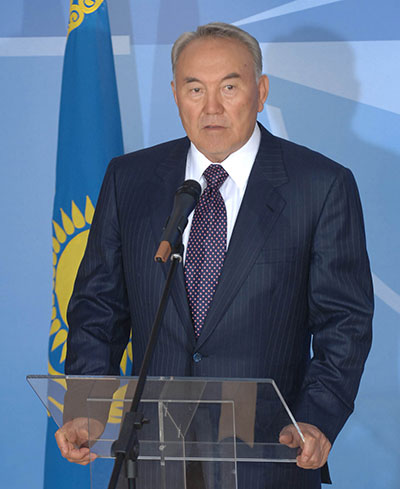At the palace of peace and reconciliation in Kazakhstan’s capital Astana, the stage is being set for the fifth world and religious congress, slated for June 10 to 11.
The congress is expected to bring together representatives of Islam, Christianity, Buddhism, Judaism, Taoism (Chinese philosophical religious tradition), Shintoism (Japanese ancient religion), Hinduism and Zoroastrianism, it was first hosted in 2003 under the auspices of the Kazakhstan president, Nursultan Nazarbayev.
It seeks to promote a global dialogue between religions and cultures, as well as deepening and strengthening of mutual understanding and respect between religious communities.
This is in addition to fostering a culture of tolerance and mutual respect, as opposed to the ideology of hatred and extremism. According to Kassym-Jomart Tokayev, the head of the secretariat of the congress of leaders of world and traditional religions, and chairman of Kazakhstan’s Senate, the congress will discuss the rising international tensions caused by political and religious extremism.
“The task of the upcoming congress is candid and effective discussion of the problems facing humanity, which is why the congress invited religious leaders and politicians to discuss the issues of dialogue,” Tokayev said in a statement.
To Tokayev, religious leaders are key in ending the international tensions because they are confessional guides, and keepers of moral and ethical values with a high capacity to influence the minds and feelings of individuals and the society as a whole.
“[Religious leaders] can inspire good deeds and accomplishments and help overcome the barriers of ignorance, fear and misunderstanding,” he said. “In turn, policymakers are able both to implement the dreams and aspirations of the people to live in peace and realise the idea of the congress to promote mutual understanding, accord and cooperation among people of different confessions and nationalities.”
The first such congress attracted 17 delegations from 13 countries while last year’s congress was attended by more than 80 delegations from 50 countries.
Besides the religious leaders, this year’s congress is expected to attract the attendance of representatives of international organisations such as the UN, the Organisation of Islamic Cooperation (OIC), Unesco, the World Islamic League, the Alliance of Civilisations, Organisation for Security and Cooperation in Europe (OSCE), among others.
“The congress in no small measure contributed to the fact that the world has not fallen into the abyss of the clash of civilizations,” said Nazarbayev.
At last year’s congress, Nazarbayev proposed creating an online resource dedicated to the formation and strengthening of global tolerance and trust, which could become part of the umbrella electronic portal; G-Global.
THE CENTRE
The palace of peace and reconciliation, also known as pyramid of peace and accord, was specially constructed to host the congress of leaders of world and traditional religions.

Its construction began in 2003 and completed in 2006 at a cost of $58m (Shs 174bn). It contains accommodations for different religions: Judaism, Islam, Christianity, Buddhism, Hinduism, Taoism and other faiths.
It also houses a 1,500-seat opera house, a national museum of culture, a new “university of civilization”, a library and a research center for Kazakhstan’s ethnic and geographical groups.
It is conceived as a global center for religious understanding, the renunciation of violence and the promotion of faith and human equality.
FRENCH VERSION
Le Palais de la paix et de réconciliation


